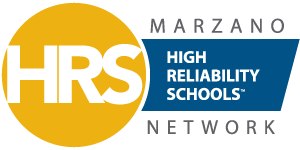Demographics
Wayne Thomas Elementary School (WTES) in Highland Park, Illinois, welcomes all students, grades K–5. The mission of Wayne Thomas Elementary is to develop lifelong learners in a nurturing environment in which every child can succeed.
324 Students
- 16% Special education
- 6.9% English learners
- 20% Eligible for free or reduced lunch
Wayne Thomas Elementary School's Challenge
Wayne Thomas Elementary School prides itself on its mission to develop lifelong learners in a nurturing environment where every child can succeed. When they received their state assessment data and discovered that only 33% of their students were on grade level for both reading and math, they realized they needed to make crucial changes.
Principal Michael Rodrigo, who has led WTES for more than five years, knew his school had the culture and staff to succeed. They simply needed a supportive infrastructure to help measure their progress, define goals for school improvement, and provide practical strategies to move forward.
He and his team discovered the Marzano Resources High Reliability Schools (HRS) framework, which introduced them to a universal approach to teaching. With it, they devised a clear plan to get the ball rolling at WTES.
Implementation
With WTES already utilizing high-functioning leadership teams, implementation of the HRS instructional framework was the next step.
The Wayne Thomas Team chose the following elements from Robert Marzano’s instructional framework for the entire school to prioritize: recording and representing content, processing content, chunking content, establishing rules and procedures, organizing students to interact, using informal assessments of a whole class, understanding students’ backgrounds and interests, demonstrating value and respect for reluctant learners, and tracking student progress.
As they began to tackle HRS Level 1—Safe, Supportive, and Collaborative Culture—the leadership team at WTES started their own self-reflection and surveying on improvement areas. Principal Rodrigo learned that how his staff viewed the school depended on their subject and how supported they were in their journeys. I.e., singleton teachers, or teachers without grade-level or course-alike peers, felt differently than teachers in core subjects. This revelation allowed Principal Rodrigo to determine the best ways to strengthen the school as a whole.
When WTES reached HRS Level 2—Effective Teaching in Every Classroom—Principal Rodrigo and his leadership team saw that teachers and staff enjoyed the professional development provided and felt supported by the school. He was then able to hone in on the singleton teams who needed further support.
WTES created “walkthroughs,” which gave teachers multiple opportunities during the school year to visit a peer in a similar role and gain teaching strategies from them.
“Our teachers and staff get excited when they reach a new level,” says Rodrigo. “It’s something for them to continue to work and strive toward. They’ve really bought into the idea that if we continue to add these levels to our school, no matter who the leader or teacher is, we will still have the systems and structures in place to have great outcomes for kids.”
During Level 2, WTES leadership allowed their teachers to focus on one teaching element a month so they could grow at a rate that was achievable. With walkthroughs continuously in process, professional development is at its all-time high for teachers at WTES.
“One of the things that we consistently heard across the board from our teachers was how they wanted to make sure their students got the exact same experience in every classroom, in every grade level. Hearing that is really exciting because we know that if we're consistently doing the work then as a school, we are doing right by our students.”
Results
Wayne Thomas Elementary School has seen tremendous improvement throughout the first two levels of the HRS framework.
As a certified Level 2 High Reliability School, they have seen growth in the areas of academic achievement, teacher practice, and school culture.
Within two years, they raised their initial 33% to 73% of students on grade level in reading and 62% of students on grade level for math. These results directly correlated to their student engagement numbers, which rose from 42% to 72% over the same years.
Staff and faculty engagement also increased from 81% to 95% of teachers reporting high engagement and satisfaction at WTES.
Each year, WTES has advanced to a new HRS level, and as they work toward Level 3—Designing a Guaranteed and Viable Curriculum—Principal Rodrigo and his leadership team are confident they will continue to see their students excel.
He credits his Marzano Resources coach, Dr. Philip B. Warrick, who gave him this sound advice: “Focus on the systems and structures and the rest will follow.”
“This HRS process is critical to us in terms of having systems in place because we meet kids at all different levels throughout the year. In this way, we can truly ensure and see that all kids are learning.”
Wayne Thomas School Culture
Positive responses from Wayne Thomas faculty and students
when surveyed about their enjoyment of the school.
Percentage of Students on Grade Level: Math and ELA
Why High Reliability Schools?
Dr. Marzano’s vision for K–12 education is simple: the vast majority of schools can be highly effective in promoting student learning. To show how, he created the Marzano High Reliability Schools framework. This framework, based on 40 years of educational research, defines five progressive levels of performance that a school must master to become a high reliability school—where all students learn the content and skills they need for success in college, careers, and beyond.





